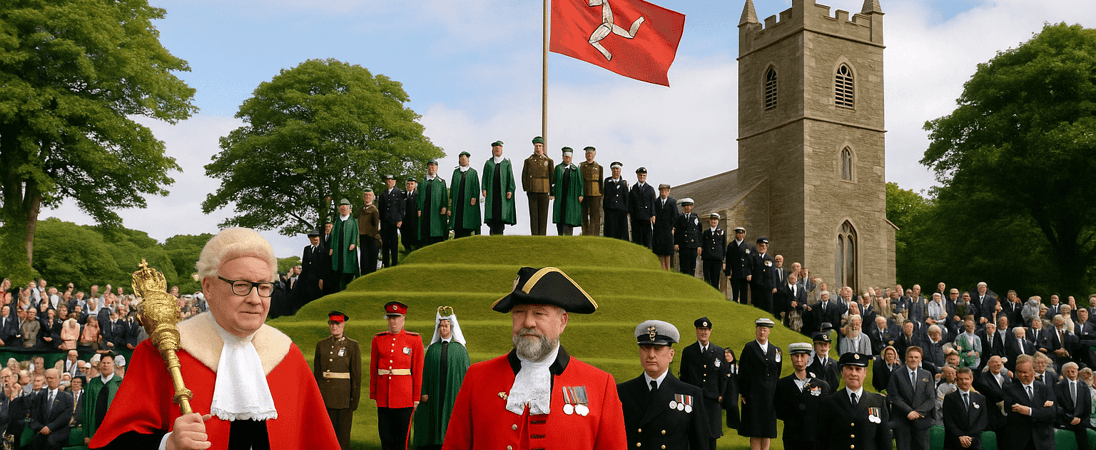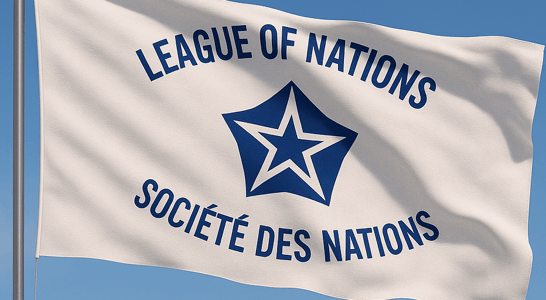
Tynwald Day
Tynwald Day is the Isle of Man’s national day when its parliament gathers in public at St John’s on Tynwald Hill. The name refers to the Manx legislature itself, a gathering that meets outdoors once each year beneath clear skies.
Members of both branches walk in procession, led by the Sword‑bearer and the Lieutenant Governor. Ceremonial words are spoken in Manx and English, bringing new laws into force in front of the people.
The atmosphere is warm and proud. Local families and visitors line the hill, clutching petitions to raise concerns directly with lawmakers.
A spirit of shared identity fills the air as every corner of Manx life shows up: music drifts across green grass, officials wear traditional robes, and the event highlights culture and self‑rule.
It feels like one big, welcoming story about a tiny island asserting its place and voice.
How to Celebrate Tynwald Day
Here are some fun and meaningful ways to take part in Tynwald Day celebrations:
Attend the Open‑Air Ceremony
Start with joining the outdoor gathering at Tynwald Hill. You’ll hear new laws read aloud in two languages. Standing among a crowd on the grass gives a real sense of community.
Submit a Petition to Tynwald
Bring a written request on any local issue. Anyone can present it before lawmakers on the Hill. This offers a unique chance to speak directly to your representatives.
Explore the Global Village
Wander through the food and culture stalls in the Arboretum. You can taste dishes from around the world and enjoy live performances from diverse communities.
Visit Culture Vannin and Chapel Events
Step inside the local heritage centre to enjoy special exhibitions and displays. Then head to the chapel to hear traditional tunes played by Celtic and Manx artists.
Browse the Tynwald Fair and Crafts Tent
Check out the fair behind the Hill. Discover locally crafted goods, tasty treats, and friendly entertainers. You might even join in a quick workshop or folk‑dance performance.
Enjoy Live Music and Evening Festivities
Stay after the main ceremony for a lively folk session or brass band play. Local venues often host ceilidhs or outdoor concerts that carry on well after dusk.
Snap Photos of Ancient Ceremonies and Symbols
Capture shots of the traditional sword‑bearer, colourful robes, and flags streaming over Tynwald Hill. These visuals bring centuries‑old customs vividly into view.
History of Tynwald Day
Tynwald Day has deep roots stretching back over a thousand years. Norse settlers, who arrived on the Isle of Man around the year 800, brought with them the idea of outdoor assemblies.
These gatherings were held on a small hill where leaders discussed laws and resolved disputes.
Over time, this evolved into a structured parliament known as Tynwald. The name itself comes from an old Norse word meaning “meeting place.”
By the 1400s, it became tradition to hold the main event each summer at St John’s, where laws were read aloud in both English and Manx. People gathered from across the island to listen and take part.
As the centuries passed, this yearly meeting continued without pause. After the Isle of Man became a Crown dependency in the 1700s, the British monarch remained involved.
Some kings and queens have even attended the ceremony. In 1979, Queen Elizabeth II visited the island to mark 1,000 years of the Tynwald’s public tradition. This long record makes it the oldest continuous parliament in the world.
While today’s version includes modern politics, the event still keeps many of its original features. From the open-air readings to local petitions, Tynwald Day links the past with the present in a powerful way.
Also on ...
View all holidaysNational Fried Chicken Day
Make your own, or gather your friends and family around a big bucket of your favorite fried chicken and indulge in the greasy, meaty, tasty goodness.
International Kissing Day
Whether it’s a peck on the cheek for a good friend or a big, romantic smooch for your significant other, shower your loved ones in kisses on Kissing Day.
Virtually Hug a Virtual Assistant Day
Virtual assistants keep the world running behind the scenes, so make sure to send your virtual assistant some appreciation in the form of a virtual hug.
We think you may also like...
Mayflower Day
A voyage across the Atlantic, a new land to call home, and the beginning of a story that would shape a nation.
Sudan National Day
Exploring the resilience and rich cultural heritage of Sudanese communities sheds light on their journey and challenges.








